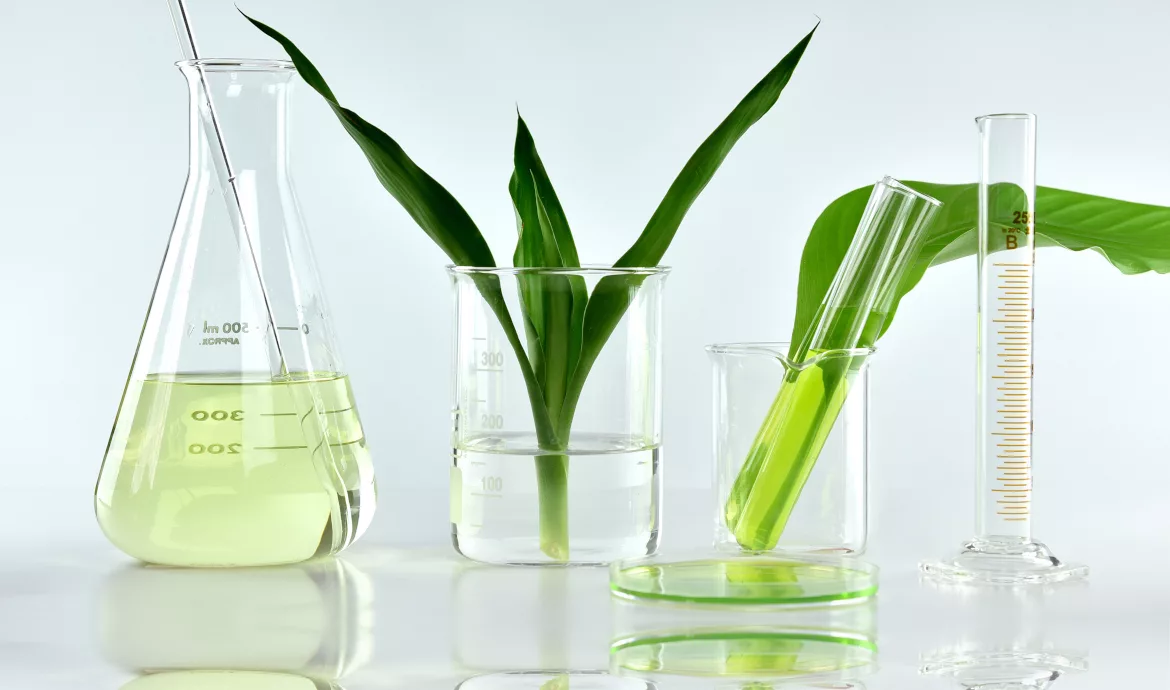Creating PU Adhesives Using the Mass Balance Method
Raw materials supplier and adhesive manufacturer partner to create adhesive using the mass balance approach.

Adhesives manufacturer are working to create products that reduce their climate impact and provide consumers and other stakeholders with materials that are deemed more eco-friendly. Legislative requirements are also a factor in the move to more eco-friendly adhesives. Among these regulations are the European Green Deal, which aims to achieve a net-zero carbon economy in the EU by 2050, and the Paris Climate Agreement, a legally binding international treaty addressing climate change that was adopted in December 2015. The Paris Agreement’s goal is to hold the increase in the global average temperature to well below 2 °C, preferably limiting it to just 1.5 °C higher than pre-industrial levels.
Additionally, companies that supply raw materials to adhesive manufacturers are working towards more sustainable manufacturing practices in order to supply clients with a supply of chemical products that help them reach their climate neutrality goals. Covestro has expanded the reach of its circular economy portfolio with the ISCC (International Sustainability and Carbon Certification) PLUS certification at its Baytown, Texas, production facility. With the ISCC PLUS certification, there can be greater focus on mass balanced products from recycled and bio-attributed raw materials. Covestro explained, “ISCC is an independent and internationally recognized sustainability certification system for biomass and bioenergy. The standard applies to all stages of the value chain and is a reference worldwide.”
Mass Balance
Mass balance accounting is a chain-of-custody approach that traces the flow of materials through a complex value chain. The practice has been used for responsible sourcing in industries such as forestry, and the chemical industry has begun to adopt this method as one way to face challenges presented in the recycling of chemicals. The technique uses a set of rules on how to allocate recycled content to different products.
Using the mass balance approach, H.B. Fuller and Covestro teamed up to produce a new adhesive product that allows customers in the woodworking, composites, textile, and automotive sectors to reduce the carbon footprint of their own products, cutting fossil resource use.
H.B. Fuller is working to lead the way as a supplier with a high emphasis on sustainability. In an effort to explore new avenues to create more eco-friendly products, H.B. Fuller was looking for a raw material supplier that shares the same goals in terms of sustainability and also has the ability to build up the supply of more sustainable feedstocks in meaningful volumes for the production of PU adhesives.
The Challenge
In the case study published on its website, Covestro outlined how it helped H.B. Fuller to develop more sustainable P.U. adhesives, “In the effort to reduce emissions, chemical processing plants have become much more energy efficient. Now, bio-based and recycled feedstocks are the logical next step in achieving further CO2 reductions, so they are growing in popularity in the chemical industry. Yet so far, their use has been limited to niche applications, paired with restrictions in availability. As a consequence, alternative feedstock prices are typically higher than for fossil-based alternatives,” explained Covestro in the case study.
The company went on to explain, “When an alternative bio-based ingredient is used in methylene diphenyl diisocyanate (MDI) feedstock, it becomes one ingredient in a wider chemical production process that integrates fossil-based feedstock. The new ingredient must be clearly documented and traced through all processing steps. It also requires that each party in the chain, from raw material suppliers to processors, trace the alternative feedstock in the mix using exactly the same methodology for systematic traceability. It is this mass balancing approach that enables the renewable share of the total feedstock in an integrated chemical production process to be attributed to specific products.
“At the same time, companies demand that the quality and performance of the final product are not compromised in any way by its reformulation, and that their own production processes – and those of their customers – ideally remain unchanged. This is the multi-part challenge of using alternative feedstocks, including ones that are bio-based.”
Solution
Covestro explained the solution that enabled H.B. Fuller to formulate a reactive PU hotmelt that has a reduced carbon footprint, “Using a mass balance approach, we delivered a renewable-attributed MDI for the formulation of H.B. Fuller’s reactive PU hotmelt. Our own network of reliable suppliers provided us with a robust, consistent flow of certified raw materials in industrial-scale quantities. At the very beginning of the chain, bio-based feedstocks are refined and processed together with fossil-based ingredients. The bio-based inputs in the MDI feedstock process were attributed to the H.B. Fuller adhesive product. For full transparency, the entire raw material balance, processing, and material flows are independently audited and certified according to ISCC PLUS requirements.
“The result: H.B. Fuller’s reactive PU hotmelt product carries a reduced carbon footprint that has been attributed via the mass balance approach. The increased availability of bio-based feedstocks made the change in sourcing from fossil-based to renewable possible; a drop-in solution that required no capital expenditures or modifications to processing infrastructure.
“The reformulated adhesive demonstrates identical product quality and properties, and also has no effect on H.B. Fuller’s customers' own manufacturing procedures. The new, renewable-attributed adhesive product can be treated and processed in exactly the same way as the product it replaces.
“Along with H.B. Fuller, we believe that the mass balance approach can play a major role in driving the Circular Economy forward. It enables companies to reduce their own CO2 emissions and replace finite fossil resources with renewable raw materials in their own products.”
“The possibility to source certified renewable feedstock in large quantities, attributed via the mass balance approach, enables us to use molecules that come with a significant carbon footprint reduction and without compromising on PU adhesive performance. This is an investment in all our futures,” said Dr. Annett Linemann, director, Technology Outlook & Sustainability - Engineering Adhesives EIMEA, at H.B. Fuller.
Benefits
The mass balance approach can be a key technology as companies work to achieve a more circular economy. The approach helps companies to reduce their CO2 emissions and replace finite fossil resources with renewable raw materials in their own products. This approach uses fewer resources, as recycled and bio-based raw materials do not use finite fossil resources. Additionally, there is no sacrificing of quality with this approach. Mass balance feedstock provides the identical product quality when compared to fossil raw material. From a financial perspective, there is no added investment when adopting mass balance products. Alternative feedstock can be dropped into existing processing equipment without the need for retrofitting. Finally, these products have ISCC certification, giving the eco-friendly product an independent and globally recognized certification.
For additional information, visit www.covestro.com.
Looking for a reprint of this article?
From high-res PDFs to custom plaques, order your copy today!






